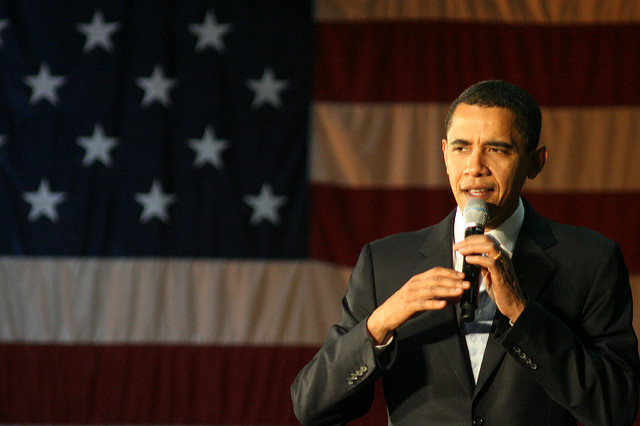During the health care reform debate, President Obama supported a public health insurance option in order to promote competition and bring down costs in the health insurance marketplace. At one point, it appeared that Congress might support a public option. But, after Senator Ted Kennedy’s death, the Democrats did not have the votes, and the Affordable Care Act was passed without a public option. Now, in an article in JAMA, President Obama advocates for a public option . . . in certain circumstances.
President Obama recognizes that we need more health insurance options in the state health insurance exchanges. However, the President takes a step back from suggesting that everyone in a state exchange should have the choice of a public option. He argues only that the public option is needed “to compete alongside private insurers in areas of the country where competition is limited.”
If “competition” means that companies are vying with each other to gain market share by offering the best mix of price, quality, and service, it’s hard to argue that there’s competition in any state health insurance exchange. Prices overall appear high. And, people are hard-pressed to assess quality differences among plans. Commercial insurers do not seem to be driving value in the marketplace. Rather, for the most part, they are offering access to a narrow network of doctors and hospitals at ever higher costs.
If UnitedHealth opts to exit all the state health insurance exchanges in 2017, which it says it may, the Kaiser Family Foundation projects that 1.4 million people will be left with only one health plan option through their state health exchanges–11 percent of state exchange enrollees. That said, even people with several health plan options often do not have the meaningful choices of doctors and hospitals that Medicare offers. People in the state exchanges tend to have limited if any coverage for doctors and hospitals outside of their area and too often don’t have coverage at the best hospitals in their area.
To drive down costs and promote value in the health insurance marketplaces, Medicare or another Medicare-like public health plan should be competing with the commercial insurers. In 2013, the Congressional Budget Office projected that a public plan would save $158 billion through 2023–with 2 million people enrolling in it–while giving people the choice of a health plan with premiums seven to eight percent lower than the private health plans. Moreover, only a public option like Medicare is likely to provide us the data to understand what’s working in the marketplace and enable us to drive system change.
Secretary Clinton has vowed to support a public option in every state health exchange, if elected President. She also supports giving people 55 to 64 a Medicare option.
Here’s more from Just Care:








I favor Medicare for all. Medicare already insures the disabled, those with sever chronic illness and the elderly. Adding the healthier young people to the pool will help lower costs.